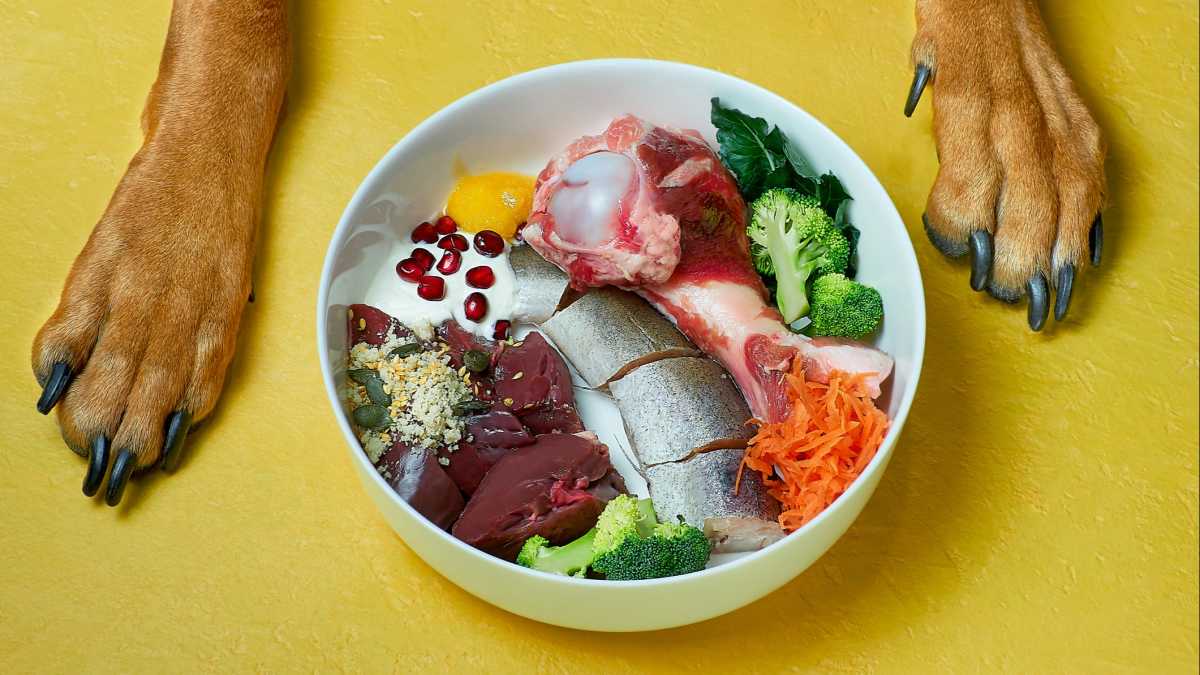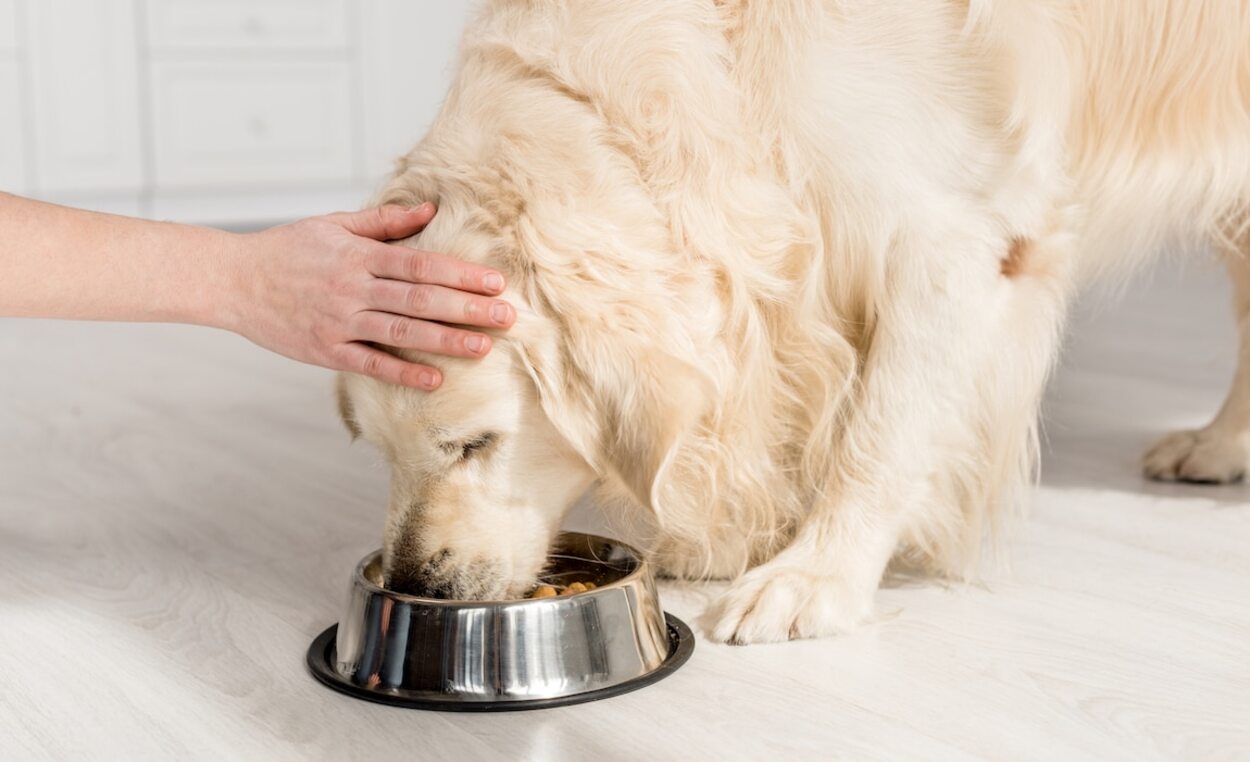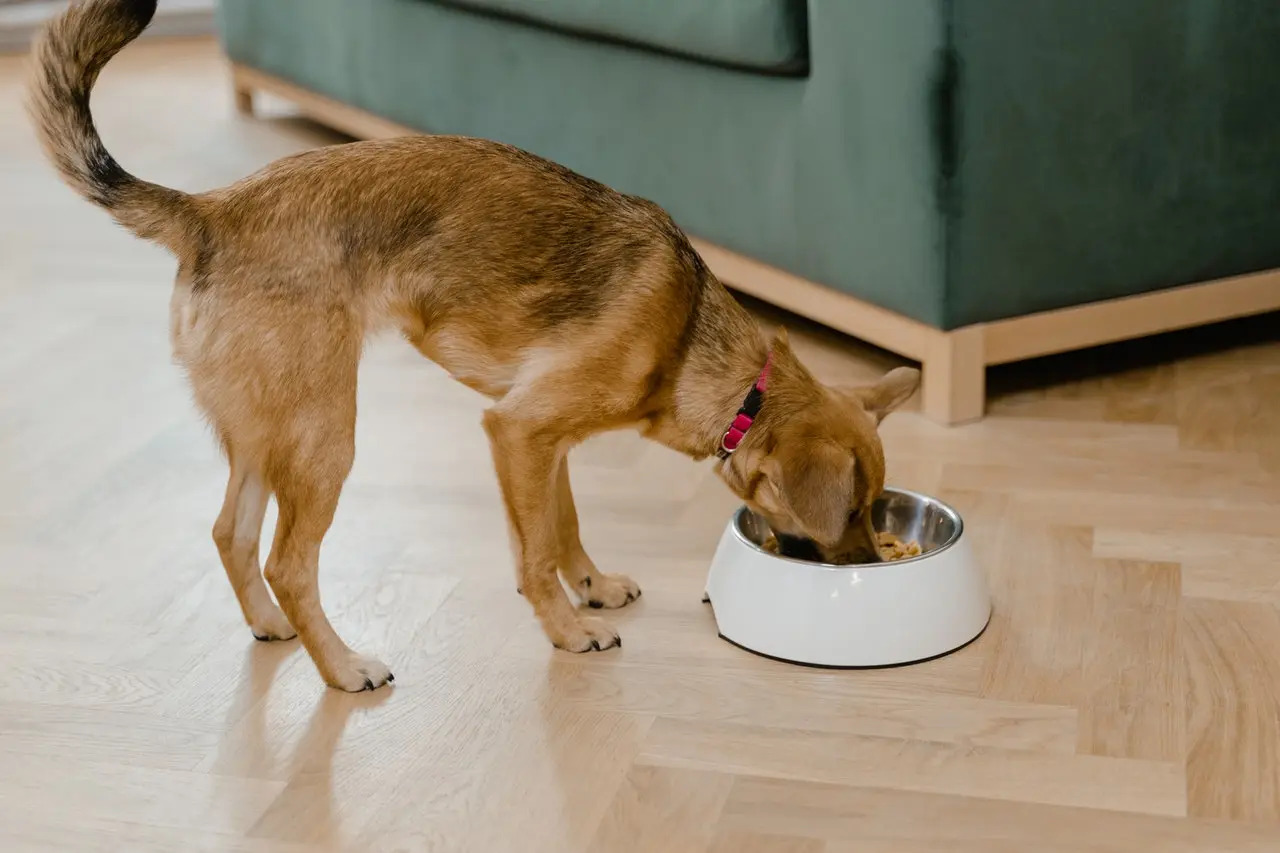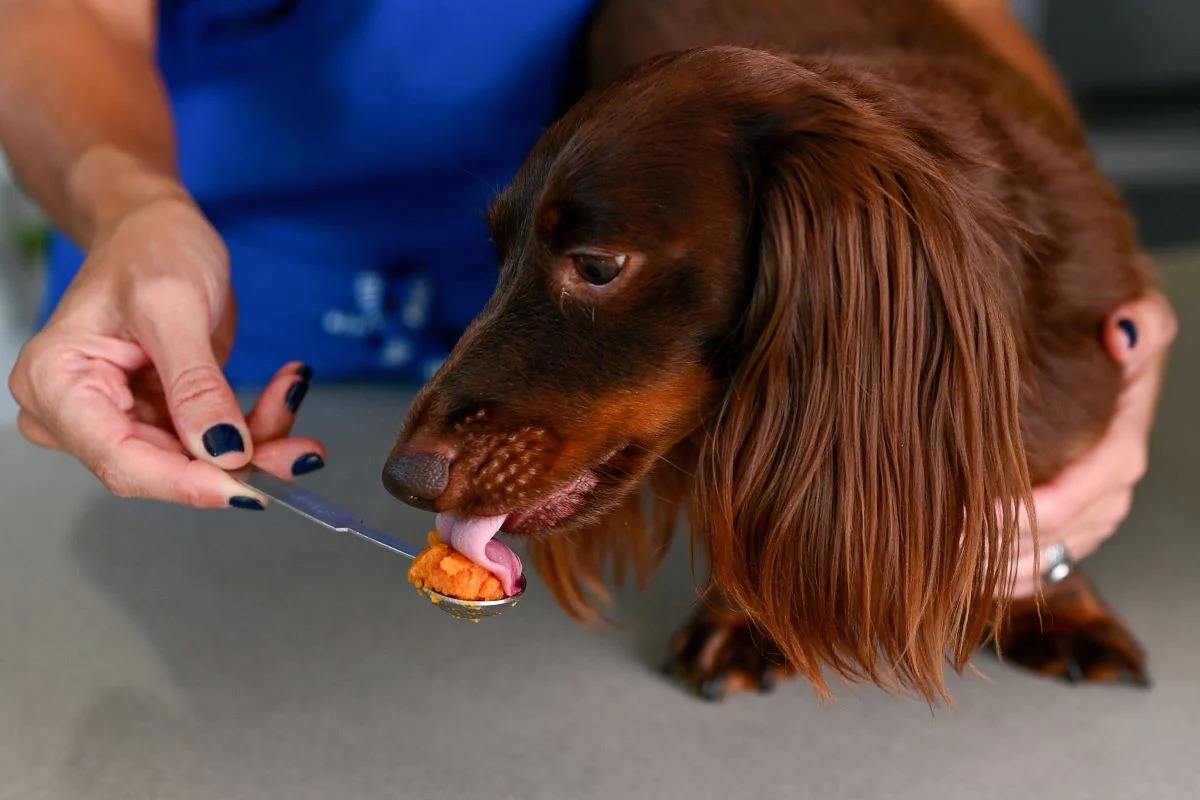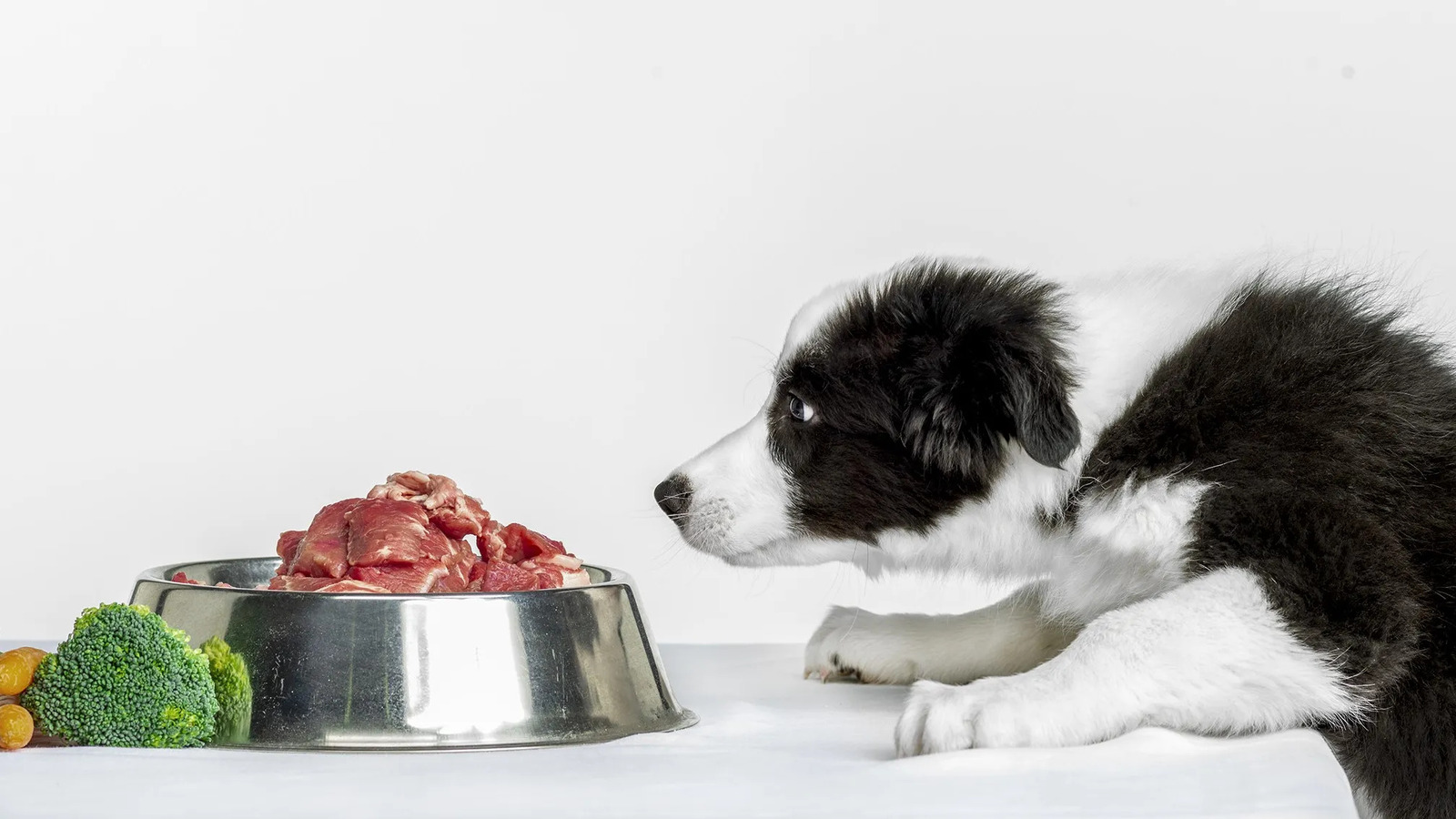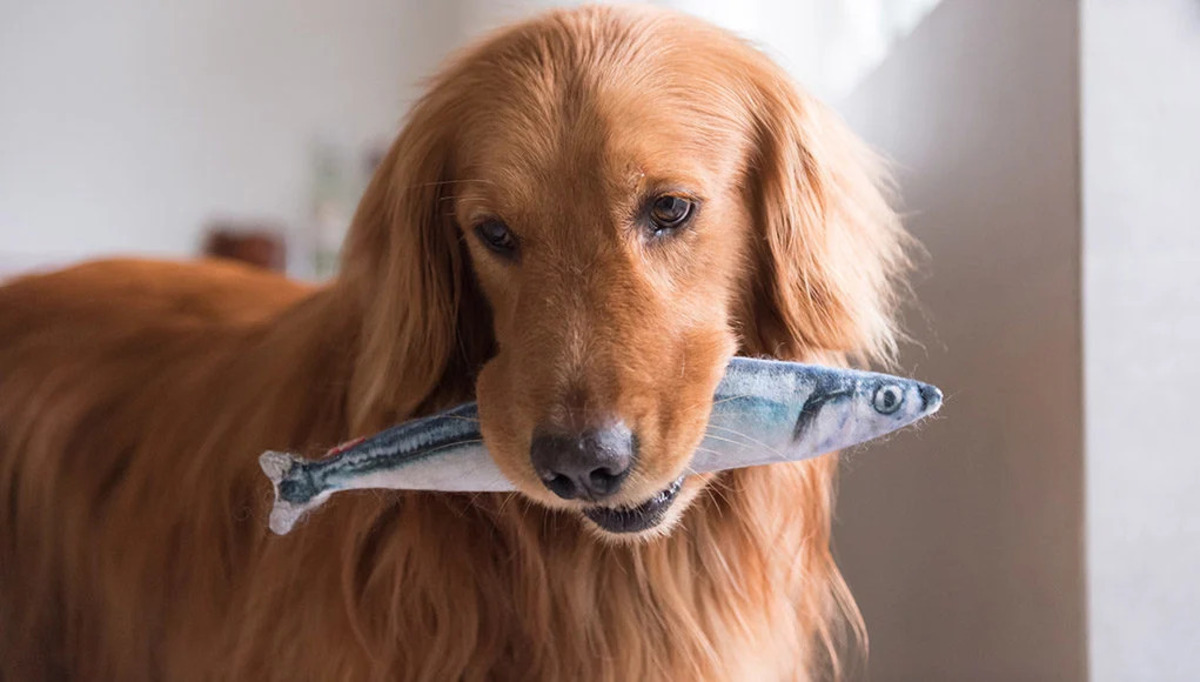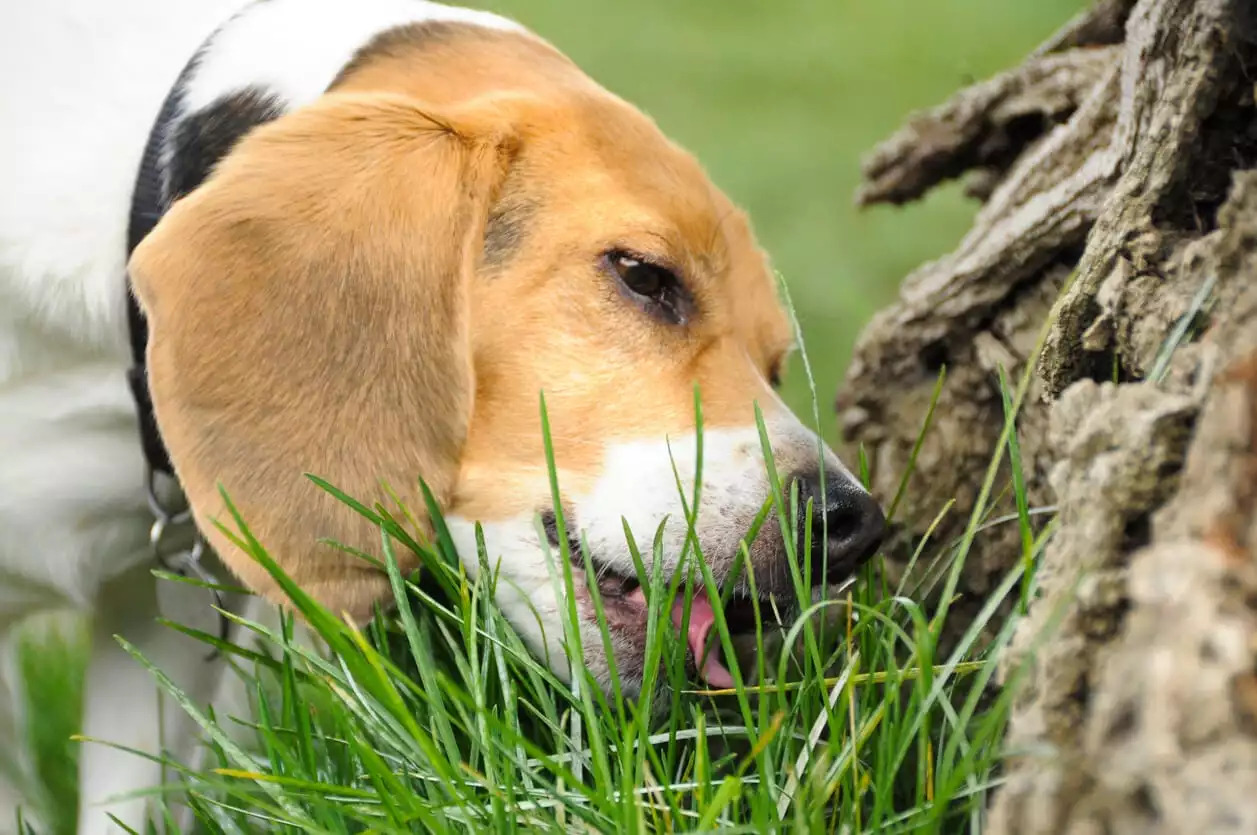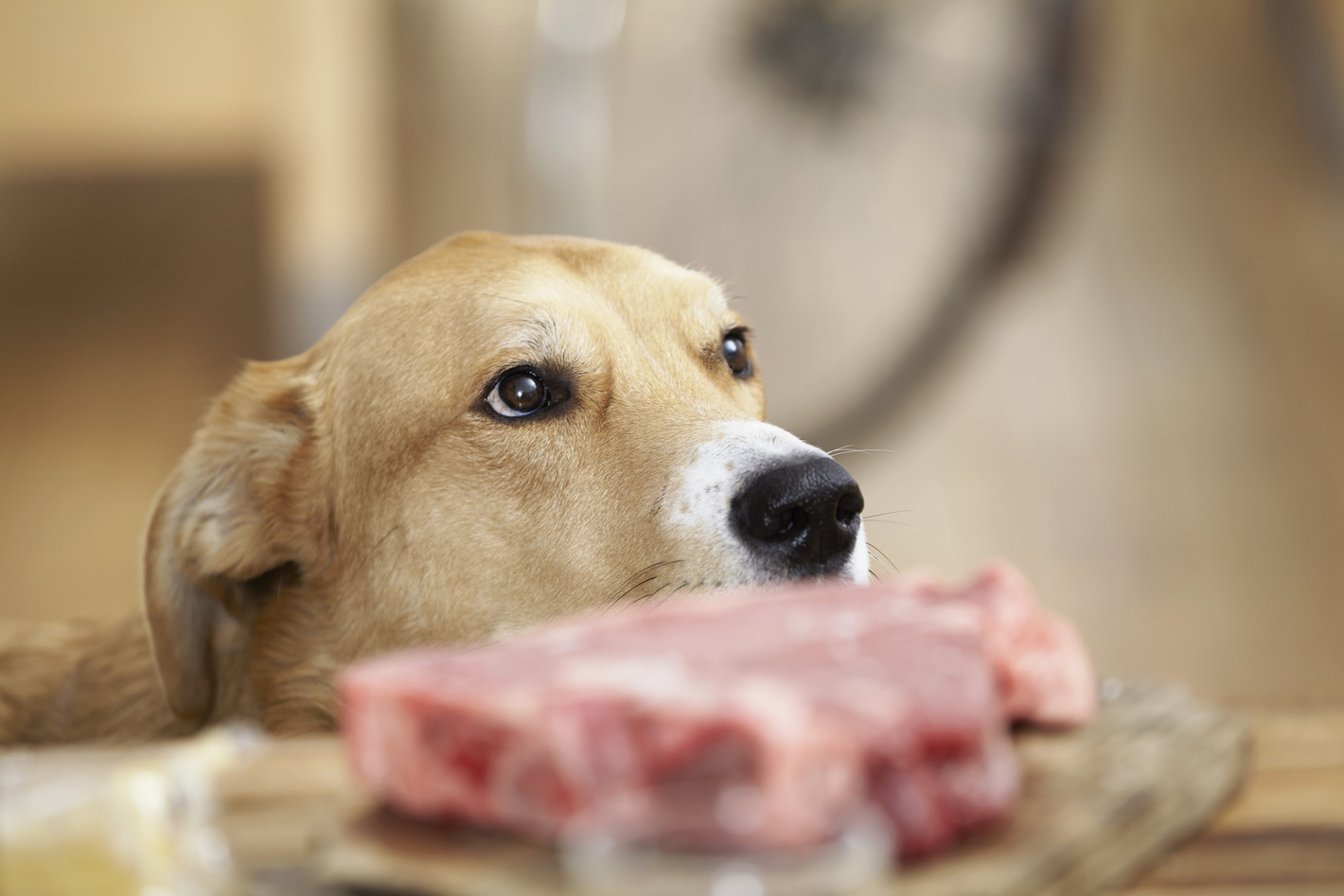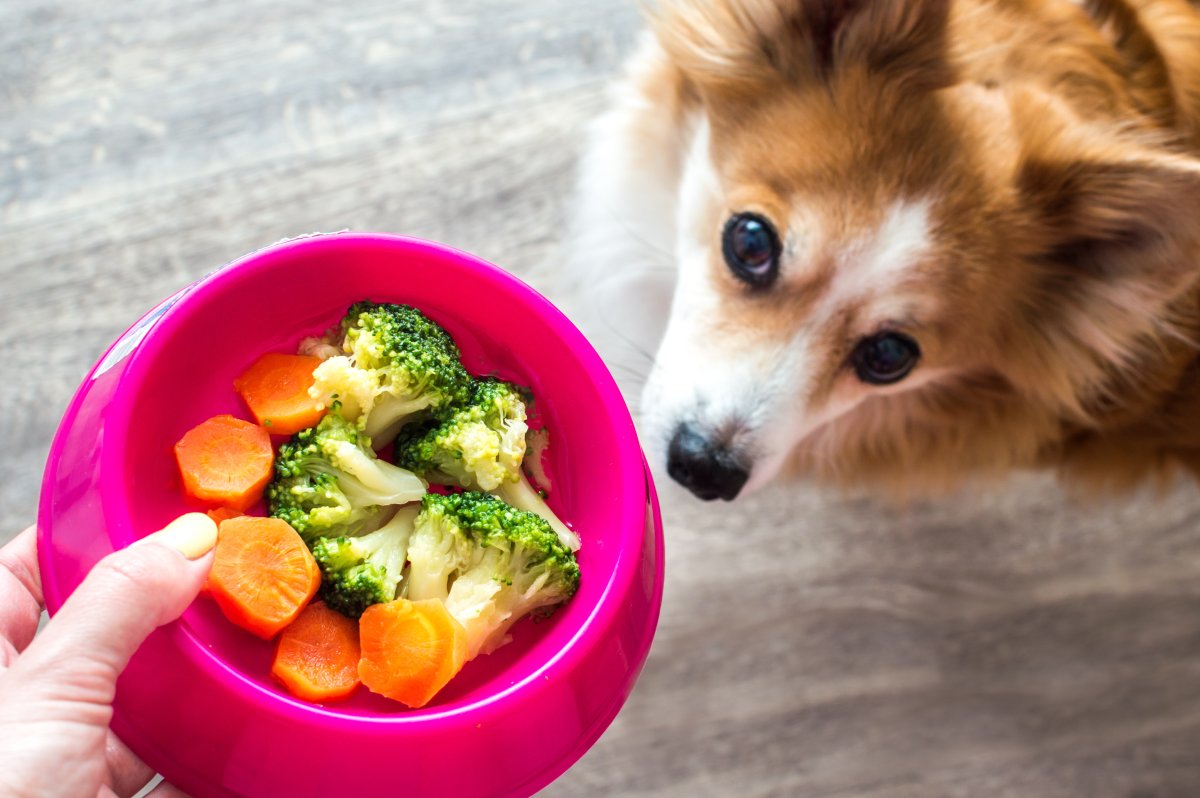Home>Health & Wellness>Nutrition & Diet>How To Increase The Iron In My Dog’s Diet
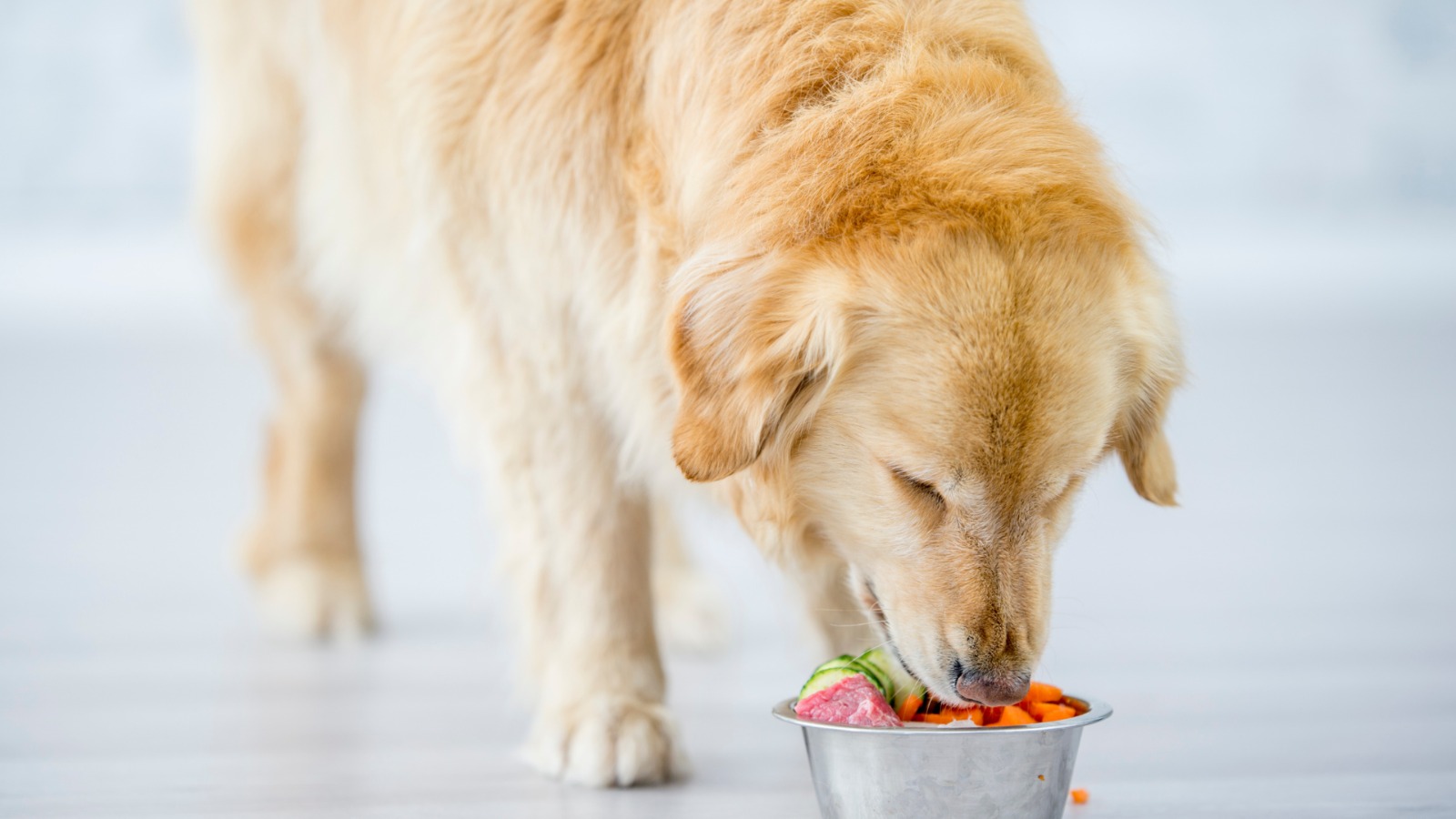

Nutrition & Diet
How To Increase The Iron In My Dog’s Diet
Published: January 29, 2024
Discover effective ways to boost your dog's iron intake with expert nutrition and diet tips. Keep your furry friend healthy and happy!
(Many of the links in this article redirect to a specific reviewed product. Your purchase of these products through affiliate links helps to generate commission for Pawsomeoldies.com, at no extra cost. Learn more)
Table of Contents
Introduction
Ensuring the optimal nutrition for our furry companions is a crucial aspect of responsible pet ownership. Just as in humans, a well-balanced diet is essential for dogs to thrive and maintain good health. Among the various nutrients vital for a dog's well-being, iron plays a pivotal role in supporting overall health and vitality. In this comprehensive guide, we will delve into the significance of iron in a dog's diet, the signs of iron deficiency to watch out for, and practical strategies to increase iron intake for our canine friends.
Iron is an essential mineral that facilitates the transportation of oxygen throughout the body, contributing to the formation of red blood cells and the maintenance of a healthy immune system in dogs. Without adequate iron, dogs may experience a range of health issues, including lethargy, weakness, and susceptibility to infections. Therefore, understanding how to optimize iron intake in a dog's diet is paramount for their well-being.
In the following sections, we will explore the signs that indicate a potential iron deficiency in dogs, highlight iron-rich foods that can be incorporated into their diet, and discuss the option of supplementing their meals with iron to address any deficiencies. By gaining insight into these key aspects, pet owners can take proactive measures to ensure that their beloved canine companions receive the necessary nutrition to lead vibrant and energetic lives.
As we embark on this journey to enhance our understanding of iron in a dog's diet, it is important to approach the topic with a sense of care and commitment to our pets' health. By empowering ourselves with knowledge and practical strategies, we can make a positive impact on the well-being of our furry friends, fostering a fulfilling and joyful companionship for years to come.
Read more: How To Feed My Dog A Ketogenic Diet
Importance of Iron in a Dog's Diet
Iron is a vital mineral that plays a crucial role in maintaining a dog's overall health and well-being. As an essential component of hemoglobin, iron is responsible for transporting oxygen from the lungs to the rest of the body, ensuring that all cells receive an adequate oxygen supply. This process is fundamental for energy production and the proper functioning of various bodily systems in dogs.
One of the primary functions of iron in a dog's body is its involvement in the production of red blood cells. These cells are responsible for carrying oxygen to tissues and organs, supporting their optimal function. Without sufficient iron, a dog may experience a decrease in red blood cell production, leading to a condition known as anemia. Anemic dogs may exhibit symptoms such as weakness, lethargy, pale gums, and reduced stamina, impacting their overall quality of life.
In addition to its role in oxygen transport, iron also contributes to the proper functioning of the immune system in dogs. Adequate iron levels are essential for supporting immune cell function and response, helping dogs combat infections and maintain robust immune defenses. Furthermore, iron is involved in various enzymatic processes within the body, contributing to overall metabolic function and cellular health.
It's important to note that while iron is essential for dogs, excessive amounts can be harmful. Therefore, striking a balance and ensuring an appropriate level of iron in a dog's diet is crucial for their optimal health. By understanding the significance of iron and its multifaceted role in a dog's physiology, pet owners can make informed decisions regarding their pet's nutrition, ultimately contributing to their long-term health and vitality.
Signs of Iron Deficiency in Dogs
Iron deficiency can have a profound impact on a dog's overall health and well-being. Recognizing the signs of iron deficiency is crucial for pet owners to take proactive measures and address any potential nutritional deficiencies in their canine companions. Here are some common signs that may indicate iron deficiency in dogs:
-
Lethargy and Weakness: Dogs with insufficient iron levels may exhibit lethargy and a notable decrease in energy. They may appear less active during walks or playtime, showing signs of fatigue and reduced stamina.
-
Pale Gums and Mucous Membranes: Anemic dogs often have pale gums and mucous membranes, which can be observed by gently lifting their lips or checking the inside of their eyelids. The reduced red blood cell count resulting from iron deficiency can lead to a paler appearance in these areas.
-
Decreased Appetite: A noticeable decrease in appetite or interest in food can be a sign of iron deficiency in dogs. They may show reluctance to eat or display a lack of enthusiasm during meal times.
-
Increased Respiratory Rate: Dogs with iron deficiency may exhibit an elevated respiratory rate, panting more frequently even in the absence of physical exertion. This can be attributed to the body's attempt to compensate for the reduced oxygen-carrying capacity of the blood.
-
Reduced Exercise Tolerance: Iron-deficient dogs may display a decreased tolerance for physical activity. They may become easily fatigued during exercise or show reluctance to engage in activities that they previously enjoyed.
-
Poor Coat Condition: A dog's coat can serve as an indicator of their overall health. Iron deficiency may manifest in a dull, dry, or lackluster coat, potentially accompanied by excessive shedding or hair loss.
-
Susceptibility to Infections: Dogs with iron deficiency may be more susceptible to infections and illnesses due to compromised immune function. They may experience more frequent bouts of illness or take longer to recover from common ailments.
By being attentive to these potential signs of iron deficiency, pet owners can promptly seek veterinary guidance and implement appropriate dietary adjustments or supplementation to address the nutritional needs of their dogs. Regular veterinary check-ups and blood tests can also help in monitoring a dog's iron levels and overall health, ensuring that any deficiencies are identified and managed effectively.
Foods High in Iron for Dogs
When it comes to enhancing the iron content in a dog's diet, incorporating foods rich in this essential mineral is a practical and effective approach. By including iron-rich foods in a dog's meals, pet owners can contribute to their pet's overall well-being and nutritional balance. Here are some excellent sources of iron that can be integrated into a dog's diet:
1. Lean Meats:
Lean meats such as beef, lamb, and poultry serve as excellent sources of heme iron, which is highly bioavailable and easily absorbed by a dog's body. Including lean cuts of meat in a dog's diet not only provides essential iron but also offers high-quality protein for muscle maintenance and overall health.
Read more: How Do I Switch My Dog To A Raw Food Diet
2. Organ Meats:
Organ meats, including liver and kidneys, are nutrient powerhouses, packed with iron, vitamins, and minerals essential for a dog's health. Liver, in particular, is renowned for its high iron content, making it a valuable addition to a dog's diet when fed in moderation.
3. Fish:
Certain types of fish, such as salmon and sardines, are rich in iron and offer additional benefits such as omega-3 fatty acids, which support heart health and contribute to a lustrous coat. Incorporating fish into a dog's diet provides a flavorful and nutritious source of iron.
4. Eggs:
Eggs are not only a highly digestible protein source for dogs but also contain iron, making them a versatile addition to their diet. Whether served scrambled, boiled, or as an ingredient in homemade treats, eggs can contribute to a dog's iron intake while offering a range of essential nutrients.
5. Dark Leafy Greens:
Vegetables such as spinach, kale, and broccoli are packed with non-heme iron, which, although less readily absorbed than heme iron, can still contribute significantly to a dog's overall iron intake. These nutrient-dense greens also provide valuable antioxidants and fiber, supporting digestive health and overall vitality.
6. Fortified Commercial Foods:
Many high-quality commercial dog foods are fortified with essential vitamins and minerals, including iron. When selecting commercial diets, pet owners can look for options that specifically mention iron supplementation, ensuring that their dog's nutritional needs are comprehensively addressed.
By incorporating a variety of these iron-rich foods into a dog's diet, pet owners can provide a well-rounded and balanced nutritional profile for their beloved pets. It's important to consult with a veterinarian to determine the appropriate portions and ensure that the dietary adjustments align with a dog's specific nutritional requirements.
In summary, by including a combination of lean meats, organ meats, fish, eggs, dark leafy greens, and fortified commercial foods, pet owners can effectively boost the iron content in their dog's diet, promoting optimal health and vitality for their furry companions.
Supplementing Your Dog's Diet with Iron
Supplementing a dog's diet with iron can be a beneficial strategy to address potential deficiencies and ensure that their nutritional needs are met. While incorporating iron-rich foods is a primary approach, some dogs, particularly those with specific health conditions or dietary restrictions, may benefit from targeted iron supplementation. Here are practical considerations and options for supplementing a dog's diet with iron:
1. Veterinary Guidance:
Before initiating any supplementation, consulting a veterinarian is essential. A thorough evaluation of the dog's overall health, existing diet, and potential iron levels through blood tests can provide valuable insights. Based on the veterinarian's assessment, specific iron supplementation recommendations can be tailored to address the dog's individual needs.
2. Iron Supplements:
There are various forms of iron supplements available for dogs, including oral supplements and injectable formulations. Oral supplements, such as iron tablets or liquid preparations, can be administered as directed by the veterinarian. It's crucial to follow the prescribed dosage and frequency to avoid over-supplementation, which can lead to adverse effects.
3. Balanced Formulations:
When selecting iron supplements, opting for balanced formulations that include other essential nutrients, such as vitamins and minerals, can support overall nutrient absorption and utilization. Comprehensive supplements designed for canine health can offer a holistic approach to addressing potential iron deficiencies while promoting overall well-being.
4. Monitoring and Adjustments:
Regular monitoring of the dog's response to iron supplementation is vital. This includes observing any changes in energy levels, coat condition, and overall vitality. Additionally, periodic veterinary check-ups can facilitate adjustments to the supplementation regimen based on the dog's evolving nutritional requirements and health status.
5. Dietary Integration:
Integrating iron supplementation with a balanced and nutritious diet is key to optimizing its effectiveness. By aligning the supplementation plan with the dog's regular meals, pet owners can ensure a harmonious approach to meeting their pet's iron needs while maintaining dietary consistency.
6. Considerations for Specific Health Conditions:
For dogs with certain health conditions that may impact iron absorption or utilization, such as chronic gastrointestinal issues or renal disease, tailored supplementation approaches may be necessary. Working closely with a veterinarian to address these considerations can help optimize the effectiveness of iron supplementation while managing underlying health concerns.
In summary, supplementing a dog's diet with iron requires a thoughtful and individualized approach, guided by veterinary expertise and tailored to the dog's specific needs. By leveraging targeted iron supplementation alongside a well-rounded diet, pet owners can play a proactive role in supporting their dog's overall health and vitality, ensuring that they thrive with the essential nutrients they require.
Read more: My Dog Farts When On A Good Diet
Conclusion
In conclusion, the significance of iron in a dog's diet cannot be overstated. This essential mineral plays a pivotal role in supporting a dog's overall health and well-being, contributing to vital physiological functions such as oxygen transport, red blood cell production, immune system function, and metabolic processes. By understanding the signs of iron deficiency and the diverse sources of iron-rich foods available for dogs, pet owners can proactively address their canine companions' nutritional needs.
Recognizing the signs of iron deficiency, including lethargy, pale gums, decreased appetite, and susceptibility to infections, empowers pet owners to take timely action to ensure their dog's health. By incorporating a variety of iron-rich foods such as lean meats, organ meats, fish, eggs, and dark leafy greens into their diet, pet owners can provide a well-rounded and balanced nutritional profile for their beloved pets.
Furthermore, for dogs with specific health conditions or dietary restrictions, targeted iron supplementation, guided by veterinary expertise, can be a valuable strategy to address potential deficiencies and optimize their overall health. It is essential to approach iron supplementation with careful consideration, ensuring that the chosen supplements align with the dog's individual needs and are integrated harmoniously with their regular meals.
Ultimately, the well-being of our canine companions is intricately linked to the quality of their nutrition. By prioritizing the inclusion of iron-rich foods and, when necessary, implementing targeted supplementation, pet owners can play a proactive role in safeguarding their dog's health and vitality. Regular veterinary check-ups, alongside attentive monitoring of their dog's response to dietary adjustments and supplementation, further contribute to ensuring that their nutritional needs are comprehensively addressed.
In the journey of nurturing our furry friends, knowledge and informed decision-making are powerful tools. By embracing the significance of iron in a dog's diet and taking proactive steps to optimize their nutrition, pet owners can foster a thriving and enduring companionship, characterized by the boundless energy, vitality, and joy that our beloved dogs bring into our lives.
